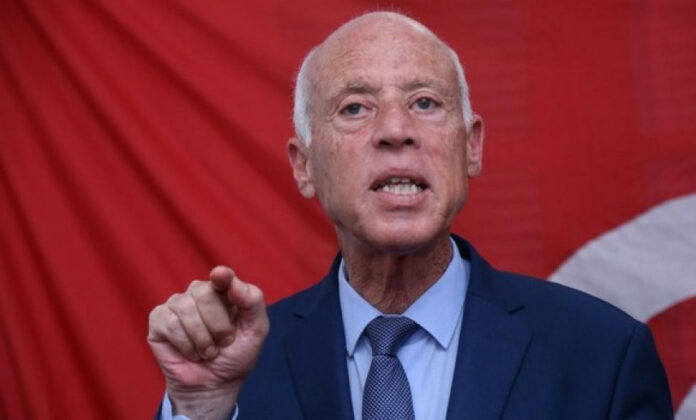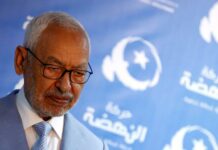“Ennahda, the other parties and civil society will fight to recover their Constitution and their democracy,” said Thursday the president of the Islamist movement Rached Ghannouchi in an interview with Agence France Presse. At the same time, he called for a “peaceful struggle against the absolute power of one man” in the wake of President Kaïs Saïed’s publication of a presidential decree by which he grants himself almost all the powers.
It is on the part of Ghannouchi a hollow appeal to all political forces to join him in “this struggle”.
Obviously the other parties as well as the social forces will not hear it from this ear. He himself acknowledges that Ennahda “was partially responsible” for the crisis that had motivated the President of the Republic on July 25 to arrogate to himself full powers.
The dilemma of the political class
This is indeed the dilemma of the political class as well as civil society following what many consider to be the return to authoritarianism if not to the dictatorship of a single person.
Even if they share the same analysis and reach the same conclusion, no one wants to take the risk of aligning themselves in the same camp as the Ennahda party considered responsible for the situation that led Kaïs Saïed to undertake his “coup de force”.
It is the failure of the party led by Rached Ghannouchi to lead the democratic transition to a successful conclusion, since it has been in all governments since 2011, that is being singled out. In addition, the presidency of Parliament by the head of Ennahda is made responsible for the execrable image given by this assembly considered as “a circus” or “a combat ring where blood has flowed”.
Only the Qalb Tounes party, whose president Nabil Karoui is imprisoned in Algeria for “illegal border crossing”, shares the same “fight”. The other party coalition partner who served as a “political cushion” for the sacked head of government, Hichem Mechichi, Al Karama is too busy with the judicial affairs of which its leaders are accused to be able to lend a hand to Ennahda.
An opposition in scattered ranks
If some formations such as the Echaab movement and al-Watad (party of unified democratic patriots, represented in Parliament, the second by a single deputy namely Mongi Rahoui have taken the side of supporting the actions of Kaïs Saïed, it is therefore in dispersed ranks that the political parties present themselves to mark their opposition to the decisions taken by the Head of State.
Some had also applauded his gesture of July 25, as long as it had constitutional coverage but expressed their opposition to the “exceptional measures” considered a de facto suspension of the fundamental law.
Thus four movements, the Republican People’s Union (UPR), the Harak Tounes Al Irada movement, the Al Irada Chaabia party and the Wafa Movement announced the formation of the Democratic Front to fight against what they consider “a coup d’état”.
The Democratic Front seeks, according to the same source, to defend the will of the people, their interests as well as freedoms, the rule of law and the Constitution. These parties said that Kaïs Saïed “constitutes a danger to the country and national unity” adding that he “broke the law and delivered hate speech aimed at dividing Tunisians”.
Without going so far as to unite their efforts, four other formations published a joint communiqué. Indeed, the Democratic Current, the Ettakatol party (Forum for Work and Freedoms), Al-Joumhouri and Afek Tounes believe for their part that the presidential decree on “exceptional measures” published on September 22 constitutes “a transgression of legality and a putsch against the Constitution that the President of the Republic has sworn to protect and a way to push the country into the unknown”.
Nevertheless, these four parties stand out from other components of the political class by rejecting “the return to corruption and chaos that marked the pre-25 July 2021, as they refuse the return to the dictatorship of before 17 December-14 January necessarily leading to corruption and marginalization”. They affirm “continue coordination among themselves as well as with democratic parties and national organizations for the formation of a civilian political front able to counter this constitutional coup and meeting the legitimate expectations of Tunisians”.
The most soaring party against Kaïs Saïed
Paradoxically, the political party that has been the hardest against the decisions taken by Kaïs Saïed has been the Workers’ Party and its main leader Hamma Hammami. Having been the most in a state of the call to denounce the day after July 25 “the coup d’état”, this party considered that the decree dated July 22 constitutes “a completion of the putschist operation, carried out on July 25, by the misuse of Article 80 of the Constitution”. He adds that this decree stipulating a provisional organization of the public authorities, undeniably means the suspension of the constitution and the establishment of a new regime contrary to the revolutionary aspirations of the Tunisian people. It therefore expresses its rejection of this approach, which “establishes an absolute and despotic personal power, contrary to the aspirations of the Tunisian people” and announces its commitment to the fight against this approach.
However, the PT is careful to make the Ennahda movement and its allies take responsibility for the current situation in the country and calls on the political, social, civil, progressive and democratic forces to take joint action, to “face this process and put an end to this dangerous manipulation of the country’s destiny”.
It is a safe bet that this aspiration to form a “united front” of the forces opposed to the approach of Kaïs Saïed will remain a pious hope. Moreover, the head of state is counting on “the dispersed ranks” of the political class to move forward in his desire to concretize his political project. He who abhors political parties is happy to see them unable to close ranks to face him.
Rifi-JDD











